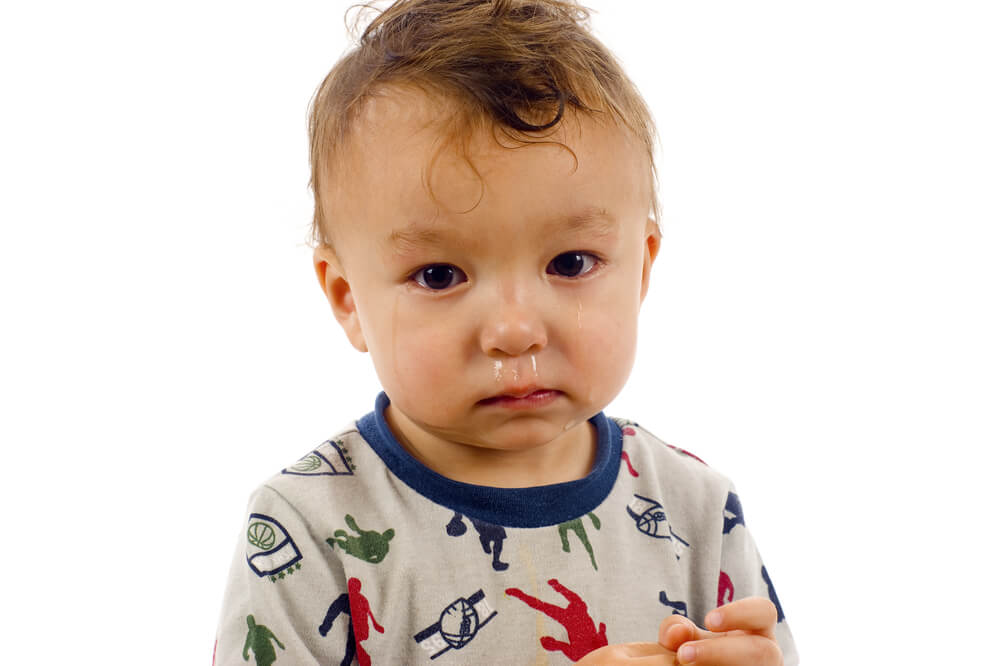Looking after a baby can be a challenging task, especially for new parents. There are many different factors to consider to ensure babies are healthy throughout their early years. One factor is what to do when a baby’s runny nose won’t stop running. Healthy kids pediatrics should always be contactable if you’re greatly concerned, however, there are a few things you can try beforehand.
How Common Is a Baby’s Runny Nose?
A baby with a runny nose isn’t too uncommon. After a baby is born, the mother provides the child with a certain level of immunity. This happens when maternal immunoglobulins are given to the placenta in the late stages of pregnancy.
However, after six months the immunity begins to fade to allow for the baby’s immune system to combat illnesses by itself. Therefore, it’s no surprise that different problems around this time period can occur that will impact the baby’s health, such as their nose always running.
As mentioned before, when a baby’s runny nose won’t stop running is quite common. However, it can still be uncomfortable for them and cause parents to worry. There is also the possibility that a more significant problem could be present. Thankfully, there are a variety of infant medicines for a runny nose.
Baby’s Nose Won’t Stop Running, but Why?

When it seems like the baby’s nose is always running, it’s mostly due to viral respiratory infections, which many of us call catching a cold.
However, there can be other underlying causes as well:
- Sinus infections
- A certain substance in the air causing irritation
- Something from a foreign body entering the nasal area
Although, it’s not always the case for a baby’s runny nose to develop because of irritation or infection. Sometimes cold weather creates the right conditions for a runny nose to develop over a short period. This happens when dry air comes into contact with the nose, and as a result, a higher amount of mucus is produced, creating a nose that’s always running.
The Length of Time a Baby with a Running Nose Lasts For
If the baby is experiencing a typical cold, then the average length until symptoms ease is just over a week. Dr. Ana Hernandez Puga (a renowned Pediatrician) recommended that if a cold lasts longer than two weeks, then parents should consider contacting their doctor. This way, the baby can be examined to determine if it’s more severe than first expected.
How to Make Your Nose Stop Running
There are many baby running nose medicine options to help alleviate symptoms, along with other methods as well. Let’s take a look at what can be done (many of which you may already have in the house):
- Saline Drops
The first baby running nose medicine method is saline drops. Congestion and mucus can be broken up with the help of drops. By doing so, wiping the nasal area can be done easier, which can also reduce the amount of redness and irritation caused. No matter if you’re using a tissue or suction device to clear up mucus, using saline drops is a good option with both methods. They won’t be the sole solution to how to make your nose stop running, but they will definitely help. - Lots of Fluids
Giving a baby enough fluids, regardless of the reason causing the baby’s runny nose, is recommended. By providing them with liquids, you can make sure they don’t become dehydrated. However, if not enough fluids are given, congestion may occur. Then you may need to give them infant medicine for a runny nose.Keep in mind that you won’t need to give an additional amount of fluids, just their usual intake. - Petroleum Jelly
If the baby’s nose is always running and you’re constantly wiping away the mucus, the nasal area can become red and irritated. When this happens, petroleum jelly can be applied to ease the skin’s soreness. A baby with a running nose will still produce symptoms with this method. However, it will certainly lessen the distress caused until it ends. Plus, it can be used alongside baby running nose medicine. - Bulb suction
An excellent way to remove excess mucus from a baby’s nostrils is by using a bulb suction. There are a few different types available that all work well in clearing the area, making it a good choice before using infant medicine for a runny nose. It’s recommended to use the bulb suction device just before the baby is fed, making it easier for them to drink the necessary fluids. This is a good option when understanding how to make your nose stop running, or more specifically, your baby’s.Using a tissue is an alternative option, however, for a nose that won’t stop running, parents should consider using this device to reduce the amount of distress, especially when the issue is lasting a longer duration.
- Cool mist humidifier
Although this may not be infant medicine for a runny nose, using a cool-mist humidifier is an optimal choice that can help add extra moisture back into a room. This combats dry air that could be causing the problem in the first place. Therefore, using this method could be a great solution when figuring out how to make your nose stop running. However, if you decide to adopt this approach, make sure to keep the cool mist humidifier in good condition by cleaning and drying it. Otherwise mold and bacteria can grow, which could create new problems on top of already having to deal with a baby with a running nose. - Don’t use menthol rubs or decongestants
Consulting the baby’s pediatrician is usually recommended before giving an infant medicine for a runny nose to ensure it’s safe for them to use.
Certain medications such as antihistamines and decongestants are often not recommended for those under the age of two. This is due to side effects that are dangerous for young babies, including raising heart rates rapidly, convulsions, or in rare cases, even death.
Menthol rubs are also not recommended for use. The reason for this is that they aren’t a good way of reducing congestion. There’s also the possibility that problems can arise if too much is applied to an infant. Some menthol rubs can even cause more mucus which can worsen the situation. VapoRub is an example of this. So it’s best not to use it when looking for baby running nose medicine.
Getting in Touch with a Pediatrician

Anytime an infant is ill, it can be an awful experience for both the parents and baby. Unfortunately, with them unable to communicate what is wrong or how severe a problem may be, the best course of action is to contact a pediatrician. If you’re looking for an experienced one in the Miami area, click here.
This way, whether it’s a common cold or something else, peace of mind can be gained by identifying exactly what’s wrong and progressing with the most suitable treatment. Even if they’re fine and it’s just a well child visit, it’s better to be on the safe side.




